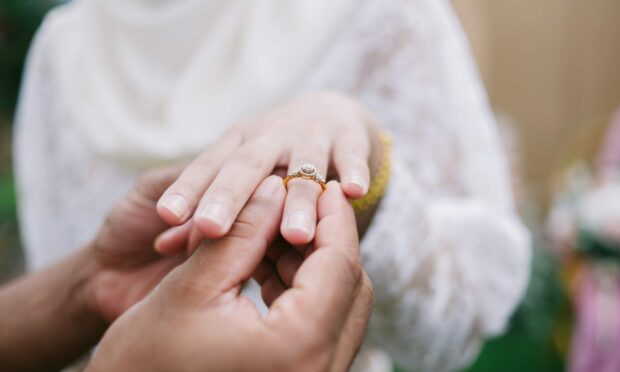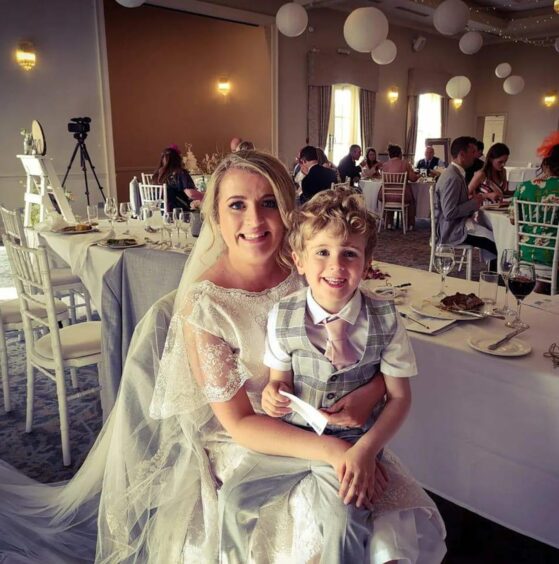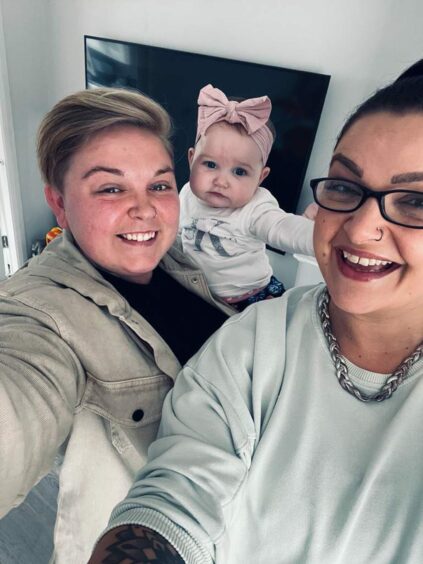Picture the scene.
It is my wedding day, and our rather enthusiastic master of ceremonies announces the happy couple.
“Would you please be upstanding, for Mr and Mrs Williamson.”
I am smiling as we thread our way through the crowd, but my throat aches with grief.
Because in that celebratory request, it feels as if my identity is wiped out.
I am no longer Ellie House, a woman I fought hard in becoming for 30 years.
I am a bride, a wife, a Mrs such and such swallowed up by another family name.
The roots of another family tree now bound to my own feeble branch, which has already buckled with the loss of my beloved dad.
A surname I once loathed in school, I now cling to in a bid to keep his presence alive.
As the weeks have passed and the post-wedding bubble has drifted away, I am yet to revel in being Mrs Williamson.
The only perk and driving factor in my decision, is that I now share a surname with my four-year-old son.
And yet Mrs Williamson remains a stranger to me, so I find comfort in continuing to write as Ellie House.
I am not alone in my sadness, with many a bride choosing to keep her maiden name these days.
The UK is one of the few countries in the world whereby the woman takes her husband’s surname.
In the eyes of patriarchal history, a woman became one of the man’s possessions upon marriage.
I caught up with couples who broke with tradition, and found out why something as straightforward as your surname is anything but.
The Wilburns
For Jackie and Lisa Wilburn, creating a new surname was a means of staring a new family.
The couple, who live in Torry, in Aberdeen, got married in 2019, and chose to combine their maiden names of Wilson and Hepburn to create a new unit: Wilburn.
Their 17-month-old daughter now carries this surname, forming a brand new family tree.
“We were happy to take each other’s surnames, but then our friends started calling us The Wilburns as a joke,” said Jackie, who is a medical secretary.
“It stuck; we were never going to conform to what was the norm.
“When we changed our surname to Wilburn, that meant it changed on our birth certificates.
“It was a big commitment. but we now have a new branch with a new family name.”
Emma Parvin
The subject was slightly more complicated for Emma Parvin, who believes her surname is particularly unique in Scotland.
She is set to marry her partner, Jake Reid, next May, and has opted to add her maiden name as an additional middle name.
“A lot of women don’t want to be swallowed by their husband’s surname, but on the other hand do you miss out on that unit identity?” said Emma, who is a warehouse co-oridnator and lives with Jake in Peterculter.
“I feel my surname is a unique identifier, my dad was adopted and got the name from his stepdad who comes from abroad.
“It’s a very hard name to let go of, but when I was growing up I actually considered changing it as I didn’t like it very much.
“I haven’t come to the conclusion as to what we will do when children come into the equation.
“For me, I want to keep my own identity. This way it’s still part of my legal name, even if it’s not in full use.”
Claire Housburgh
For business owner Claire Housburgh, keeping her maiden name held great poignancy.
A redhead with Italian roots, Claire’s maiden name of Notarangelo, which means our angel in Italian, meant she always stood out from the crowd.
After her first marriage ended, Claire, who lives in Portlethen with husband Ben, found great comfort in returning to her maiden name.
“My first marriage wasn’t a pleasant marriage, I got a lot of strength from my maiden name,” she said.
“I met my new husband nearly 10 years ago.
“When my dad received a palliative diagnosis, me and Ben made the decision that I would keep my maiden name in some sense in order to honour my dad.
“He passed away before he could walk me down the aisle, so it felt like a way of having my dad with me.”
Claire sees hundreds of brides thanks to her business, RedRocks, where she designs bespoke bridal accessories.
“Keeping my maiden name for work felt like empowerment for me,” she said.
“I’m seeing brides keeping their maiden name for work, double barreling, or keeping their name completely.
“The more alternative brides, well their husband’s take their name.”
Fact Box: Name by law
Historically, losing your maiden name began in the 16th Century.
In the UK a woman was compelled to take her husband’s surname after marriage by law.
She gave up all rights of ownership and self -governance in doing so and became her husband’s property.
The only women in the UK that weren’t compelled by this law lived in the lowlands of Scotland between the 16th and 18th Century.
A study completed by The Deed Poll Office, saw requests from newlyweds to officially retain their maiden names alongside their spouse’s surname, rise by 30 per cent between 2020 and 2021.
Celebrity examples include Brooklyn Beckham and Nicole Peltz, who married earlier this year and are now officially Mr and Mrs Peltz Beckham.




Conversation